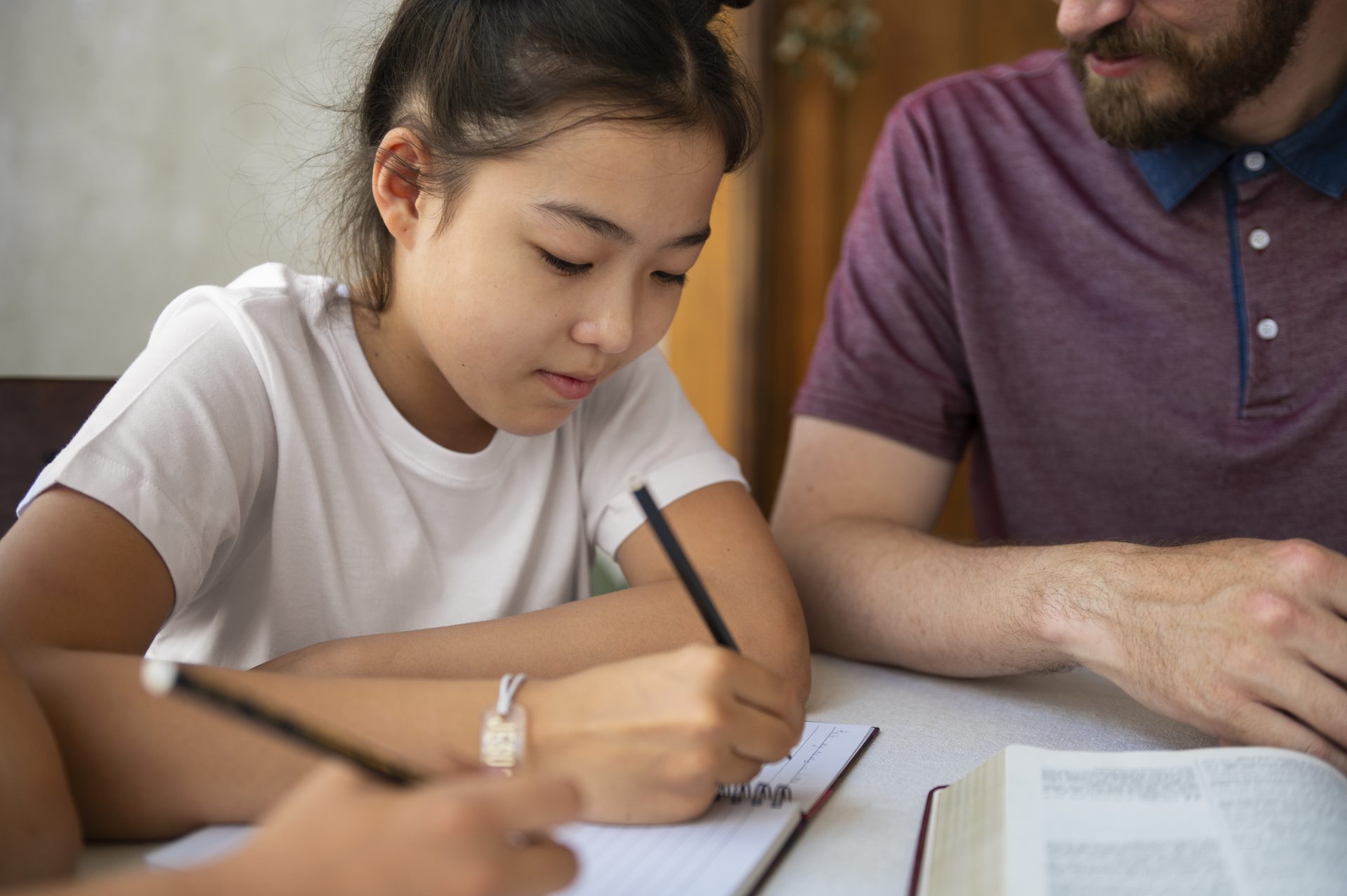Contents
- 1 Diving into Unschooling: A new Pedagogy
- 2 The Role of Parents in Unschooling
- 3 Social Development in Unschooling
- 4 Benefits that Make Unschooling Stand Out
- 5 Tailored Learning Experience
- 6 Flexibility
- 7 Encourages Creativity and Critical Thinking
- 8 Unconventional Learning: Comparison with Traditional Education
- 9 Blueprint for Successful Unschooling
- 10 Guidance for Parents
- 11 Unschooling: A Leap into the Future of Education
What is unschooling? Unschooling is an educational method that prioritizes activities chosen by learners and self directed learning. It focuses on education tailored to each child’s passions, encouraging curiosity and imagination. Unschooling fosters practical skills through real life experiences rather than specific curriculum.

Diving into Unschooling: A new Pedagogy
Unschooling is viewed as a step back from the education system. This pedagogy bases itself on the core belief that children have an inherent curiosity and a natural inclination to learn. The brick and mortar approach to learning through standardized curricula and following textbooks is something that unschooling steps away from.
Instead, this strategy concentrates on student’s interests, their innate drive for acquiring knowledge, and development of their creativity. Unschooling supports fostering problem solving abilities and critical thinking skills through self directed learning experiences that cater to their passions and strengths.
This approach is not limited to classroom environments or conventional subjects. Children are free to explore a range of topics like art, music, technology or entrepreneurship. The flexibility of unschooling nurtures uniqueness and instills a strong sense of responsibility in their own educational path.
Michayla Best is an educator who speaks proudly about unschooling strategy, stating below.
“Why am I choosing unschooling at the moment? […] I am concerned with how we are pushing our children earlier and earlier to master concepts that are developmentally too advanced. I want my girls to be ready to learn, not forced to do so.”

The Role of Parents in Unschooling
Parents’ role in unschooling is one of mentors and guides for traditional teachers. Families must get involved to understand their child’s passions and actively assist them in discovering materials that will spark their curiosity. A nurturing and supportive environment will encourage students to become thinkers by making decisions about their learning journey and forming a connection with education that will go beyond traditional academic boundaries.
It is important to recognize the impact of unschooling on a child’s development for those more accustomed to conventional educational structures.
Social Development in Unschooling
Kids who go through unschooling can experience diverse social interactions stemming from participation in community activities, group projects, interest-based clubs, and extracurricular programs. These programs contribute to students’ social awareness and help in navigating different environments while also forging meaningful connections with individuals across different age groups and backgrounds. Unschooled children have many chances for apprenticeships, volunteer work, internships, and joint projects with local organizations. These community experiences teach a wide range of social skills like adaptability, leadership, empathy, and cultural appreciation which are all helpful for holistic personal growth.

Benefits that Make Unschooling Stand Out
Unschooling offers a range of unique benefits that set it apart from traditional schooling.
Tailored Learning Experience
- Children can immerse themselves in topics they feel passionate about, taking the lead in their learning journey.
- Personalized approach allows them to explore and understand subjects at their own pace and in great depth.
- Immersion based on passion and interest leads to a profound understanding and passionate enthusiasm for the subjects they love.
Flexibility
- Unschooling doesn’t tether children to a rigid schedule or curriculum.
- The program encourages families to embrace every opportunity for learning that arises in daily life.
- This type of malleability offers an authentic learning experience that is tailored to each child’s unique interests and passions.
Encourages Creativity and Critical Thinking
- Unschooling fosters critical thinking by giving freedom to explore activities and develop problem solving skills through hands-on learning.
- The program sparks creativity and analytical abilities.
- Unschooling motivates children to think about improving their approaches for innovative problem solving.
- The program fuels a desire for ongoing education in students by pursuing their passions.
Unconventional Learning: Comparison with Traditional Education
Unschooling is radical in its approach to curriculum as it puts the child in the driver’s seat. The student decides what they want to learn and explore based on their interests. Kids also set their own pace while diving into any topic that piques their curiosity. This flexibility allows for a personalized and relevant learning experience.
General educational experience follows a specific set curriculum that students have to follow. Unschooling erases that forced and rigid schedule by letting students explore and learn their interests.
For example, a child that is passionate about animals will immerse herself or himself in learning about different species, behaviors, habitats, and even conservation efforts when following the unschooling method. This kind of flexible self-directed learning can foster a deeper understanding and appreciation for the natural world.
Embracing Real-World Learning
Unschooling values real-world experiences as an integral part of education. Field trips, internships, community service projects, and hands-on activities are all considered valuable learning opportunities. Unschooling encourages children to apply what they’ve learned in meaningful real-life situations unlike the traditional education in the confines of a physical classroom.
For example, traditional education will read books about gardening but unschooling takes children out into the garden to get their hands dirty and actually grow plants. The latter provides a more immersive, practical and experiential form of learning that will allow students to utilize that knowledge in the future.
Blueprint for Successful Unschooling
How does a family make sure an unschooling strategy is a success? There are several features written below.
Creating an Enriching Environment
Unschooling thrives in an environment that celebrates curiosity and supports self-directed learning. Families must encourage their child’s interest by ensuring they have access to a wide variety of resources such as books, educational games, art supplies, and science kits. These resources allow students to explore and delve deeper into their passions when curiosity strikes.
Families empower their children to embark on their learning journey at their own pace while also cultivating a love for learning by providing these resources to them.
Embracing Networking and Community
Unschooling flourishes in a supportive community. Families should connect with other unschooling families, join forums, and participate in community events to share experiences and gather valuable insights on unschooling.
Networking offers both support and emotional backing since all families on those forums are on the same path. This support system will open doors to collaborative learning opportunities where children can come together and learn from each other’s unique experiences.
For example, kids exploring nature together will help each other identify plants and insects. These interactions will help foster social skills, empathy, cooperation, and respect for diverse perspectives.
Crucial Resources for Effective Unschooling
Successful unschooling requires access to diverse learning materials that go beyond traditional textbooks and workbooks. These materials include books, educational kits, digital learning platforms, and more. Resources must cater to different learning styles and foster an environment where children can follow their interests and dive deep into subjects they feel passionate about.
The beauty of unschooling is its flexibility. Having a wide array of learning materials enhances this flexibility. A rich collection of books, both physical copies and e-books, allows children to explore various subjects according to their interests. Educational kits can range from science experiment sets to art supplies which will provide hands-on experiences that add to their academic learning. Digital learning platforms offer interactive lessons, videos, and educational games that make learning engaging and entertaining.
Guidance for Parents
Unschooling requires informed and supportive parents who understand their role in facilitating their child’s education. It is crucial for parents to have access to guidance and support as they navigate the unschooling journey with their children since they must work together to succeed.
This type of guidance can include articles, webinars, workshops, and expert advice tailored specifically for parents practicing unschooling. Parents must understand how to create a conducive learning environment at home, identify teachable moments in everyday life, and effectively support their child’s self-directed learning. Those practices are integral aspects that parents need to grasp.

Unschooling: A Leap into the Future of Education
William Vesneski and his team have done a survey to understand how families and children react to homeschooling in their “American Families’ Attitudes to Unschooling: A National Survey” study. Their results came back showing that 74% of survey participants signaled interest in Self-Directed Education (Unschooling).
Unschooling presents a viewpoint that fits well with the increasing importance of tailored education. The traditional school system always sparked discussions with some pointing out its limitations in meeting learning needs and nurturing creativity. Unschooling aims to tackle these issues by promoting freedom for exploration and self discovery.
Unschooling strives to provide an experience that values uniqueness by allowing children to learn at their pace and about subjects that interest them. This approach welcomes learners and helps them reach their full potential without being restricted by rigid frameworks.
Unschooling encourages critical thinking and problem-solving skills by presenting real-world scenarios for children to solve and understand. It’s possible for unschooling to emerge as a more widely accepted pedagogical approach in the future in light of advancements in education.
The future of education is evolving rapidly. Unschooling represents an innovative approach that fosters creativity and individualized learning, which brings an exciting time to be part of this transformative journey.
Check out Legacy Online School programs to find what you need:
- Legacy Online School’s elementary school program sets the bar high. This is a quality education. We strive to ignite curiosity. We also strive to foster creativity. We offer a strong curriculum. We are assisted in this by qualified educators.
- Legacy Online Middle School provides digital education. It is designed for middle school students. The school prides itself on offering live online classes taught by certified teachers. The classes are online and interactive.
- Legacy Online High School is a unique method of online learning carefully designed for high school students. It combines synchronous learning, a wide range of pedagogical methods, and an emphasis on accessibility.
Legacy Online School offers the best curriculum for you and your child to get the best online educational experience.
Our rigorous curriculum ensures that graduates are well prepared for universities and workplaces around the world. In addition, our vibrant virtual clubs connect students all around the world.





